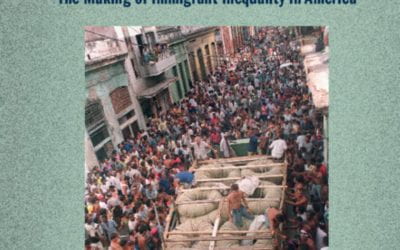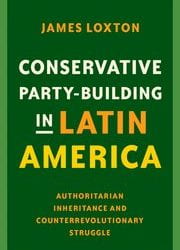With COVID-19, We are All Immigrants
My daughter, Paula, is a fourth-generation immigrant. She was born here in the United States. I, her mother, was born in Venezuela. Estela, her grandmother, was born in Argentina. Aurelia, her great grandmother, was born in Italy. The war and two dictatorships were the causes of each of our exiles.
I often wonder how all this running has shaped us — this apparent inability to stay still.

Aurelia, Liendo’s grandmother, migrated from Italy to Argentina.
In her illustrated memoir The Best We Could Do, Vietnamese-American writer Thi Bui talks about her refugee family always having a brown file folder in which they placed the most essential pieces of their identity: birth certificates — translated and notarized, green cards, Social Security cards. One night, when she was 14, some oxygen tanks exploded in her building, and her first instinct was to grab the folder and save it. “This is the night I learned what my parents had been preparing me for my whole life — the inexplicable need and extraordinary ability to run when the shit hits the fan,” she exclaims.
I too have my folder; I always have. I took it with me once, when Hurricane Irma was menacing Florida, along with a few books and a pair of gold earrings that my daughter hasn’t used yet, because we still haven’t pierced her ears. That night we drove as if we were being chased by our past, and we did not stop for any sustained sleep until we got to Chicago, the only place where we have family to stay with, until the storm passed.
There must be something else, though. Something in our character that works differently, something that runs deeper in our immigrant fiber. Perhaps it is, as Haitian-American writer Edwidge Danticat expresses in her memoir and essay Create Dangerously: The Immigrant Artist at Work, “coldness that hides a fear of attachment because who knows when we might have to leave, to go into hiding, into exile? Who knows when we might have to die?” Her words resonate with me like gospel.
While I’m writing these paragraphs, my mom is recovering in Venezuela from a severe surgery that lasted seven hours. She has cancer, and they removed a tumor in her colon that doctors had been attacking for months through chemo- and radiotherapy. She is in Caracas, by herself, in a hospital bed, a few blocks from where I went to school in La Floresta, a beautiful place shaded by tropical trees. Because of the coronavirus pandemic and all the travel restrictions, I couldn’t be there with her.
Her doctor calls me every few hours. “Estela is doing well, under the circumstances,” he says. “We took her off the respirator. Her spirits are up,” he adds, trying to cheer me up. Those updates are all I have, and I write them in a notebook while he speaks so I can read them again later, many times, until I make sense of them. They become a mantra. My mom seems to be doing well. To quote South Korean author Kyung-sook Shin, “Life is sometimes amazingly fragile, but some lives are frighteningly strong.”
The doctor, wisely, is spacing out his visits to the hospital because of the virus, he mentions casually on one of the phone calls. Everyone is afraid of being infected. Because I’m so worried, and distant, I grab my Afro so hard between my hands that I end up with hair on my hands. My husband quietly cleans up what falls on the floor with a broom. I try to joke in vain about our non-existent dog shedding. He doesn’t laugh. I can barely breathe.
“Déjate ayudar,” reads a text message that one of my closest friends sends me the day after my mom’s procedure. “Let others help you.” I spent the entire day thinking about this phrase, unceasingly. I had, I think, let colleagues, family and friends help in this stage of my mother’s illness.
A week ago, we opened a fundraiser in order to pay her hospital fees. Venezuela is facing one of the biggest humanitarian crises in contemporary history. Because of the collapse of the economy, her health insurance didn’t cover any of these expenses. We managed, however, to raise the majority of the money needed before her tumor hardened. Tumors, I recently learned, can harden if you don’t extirpate them within a certain, very small, window of time. We raised the money even though the crisis and the quarantines across the world had already started.

Liendo’s daughter, Paula, held by her grandmother, Estela.
I work at a television network, with colleagues and fellow reporters who have been staring for weeks at death with open eyes, but have been bravely reporting from vulnerable Latino communities with the highest risks of contagiousness. However, many of them took the time to donate money and talk with me past midnight, brainstorming solutions to help my mom.
But it was on the third day, after the procedure, that I really understood how much I’m going to need to learn to rely on the kindness of others — how much I’m going to need to “let others help me.” My mom now needed colostomy bags and rigs in a country where there is a critical shortage of medicine and food.
For years now, I, like the majority of Venezuelans in exile, have been sending boxes home, mostly by sea, but also by plane, with soap, pasta, grains, toilet paper, aspirin, cooking oil and chocolates that I’m sure always arrive melted.
She needed these bags by Monday, and it was Saturday. Nothing can be sent that fast, not through Miami, where I live, not through Colombia, not through Panama. The majority of airlines have suspended their flights to Venezuela.
Yesika Salgado wrote a beautiful poem about love that she published March 15 on her Instagram account. I didn’t know, when I read it the first time, anything about the bags that I’d need to find and how desperate and powerless I’d feel about having them out of reach.
It goes like this:
to love in a time without touch. a time of screens & distance. to ache at the thought of their hand untouched by yours. to yearn. to hurt. to feel the squeeze of throat. to love without a body.
this is how we have loved with borders between us. what is this but another wall?
Finding the drainable pouches was challenging. It took dozens of different WhatsApp chats to get them, but we managed, following a lead that a stranger gave me, and an international transfer through the Zelle app.
Sensing my desperation, a mourning friend whose father died of diabetes recently in Venezuela (he couldn’t fly to the funeral because of the coronavirus) started sending me the phone numbers of people he knew who might have gasoline in their cars (there is also a shortage of gas in Venezuela) and could try to get the bags to my mom’s doctor.
One of them, Rafael, a radio talent who makes deliveries for extra income, sent me voice messages in his well-articulated voice explaining that he couldn’t travel through municipalities, but he could coordinate the delivery along with his “compadre” who lives closer to the hospital at which my mom was staying. At the end, his wife, Carolina, defied the quarantine to help my mom.
I picture in my mind an Olympic relay race, these bags being passed like batons from hand to hand — an invisible human bridge that pieces together another city impacted by COVID-19.
I feel lost thinking about this strange image, but also about my first country, and the uncertainty of the times in which we are living.
“You can also rely on me. I’m washing my friend’s dirty clothes by hand, because I have water at home,” my cousin Ernesto texted me later that day, knowing that we are going to need to find many other supplies besides bags. “If we don’t give each other a hand we won’t get out of this,” he adds. I’m not sure if he is referring to the coronavirus, the Venezuelan crisis or the personal emergencies, big and small, that we all are facing, like my mother’s cancer and the lack of bags.
I read his message to my husband, and for the first time since my mom’s diagnosis, I cried. It wasn’t much, it wasn’t loud, but it was just enough for him to drop the trash that he was taking down to the street. He tried to hug me, but I immediately recomposed myself. I also have only heard my mom cry once during this time, briefly, almost imperceptibly. I was reading the names of the donors to the fundraiser, the ones who she doesn’t personally know.
Generosity broke her, broke us. It lowered our defenses, because, before we were immigrants, we were people, women, mothers.
“Everyone leaves if they need to, if they can, or if they have to,” writes Valeria Luiselli in her book Lost Children Archive.
“Everyone migrates, even if we stay in the same houses our whole lives, because we can’t help it. We are all migrants through time,” says Mohsin Hamid in his novel Exit West.
While I read about people losing their jobs, businesses struggling, doctors dying and shortages of masks and gloves, I recognize the terror and the toughness from our past as diaspora, as exiles, refugees, migrants, emigrés, green card holders, immigrants, half-generation, first-generation, second-generation. But I also sense the same impulses for solidarity, the same need to help others, to take care of one another, that is keeping my mom alive.
That’s the challenge in the harshness and the grief: to learn to receive kindness and love. That’s what will help us confront an unpredictable future, what will bring us through this plight.

Journalist Olivia Liendo. Photo by David Maris
Olivia Liendo is a reporter, editor and project manager working at the intersection of journalism and social impact. She is Senior Manager of CSR & Social Impact Digital News at Univision.
Related Articles
A Review of Cuban Privilege: the Making of Immigrant Inequality in America by Susan Eckstein
If anyone had any doubts that Cubans were treated exceptionally well by the United States immigration and welfare authorities, relative to other immigrant groups and even relative to …
A Review of Conservative Party-Building in Latin America: Authoritarian Inheritance and Counterrevolutionary Struggle
James Loxton’s Conservative Party-Building in Latin America: Authoritarian Inheritance and Counterrevolutionary Struggle makes very important, original contributions to the study of…
Endnote – Eyes on COVID-19
Endnote A Continuing SagaIt’s not over yet. Covid (we’ll drop the -19 going forward) is still causing deaths and serious illness in Latin America and the Caribbean, as elsewhere. One out of every four Covid deaths in the world has taken place in Latin America,...



